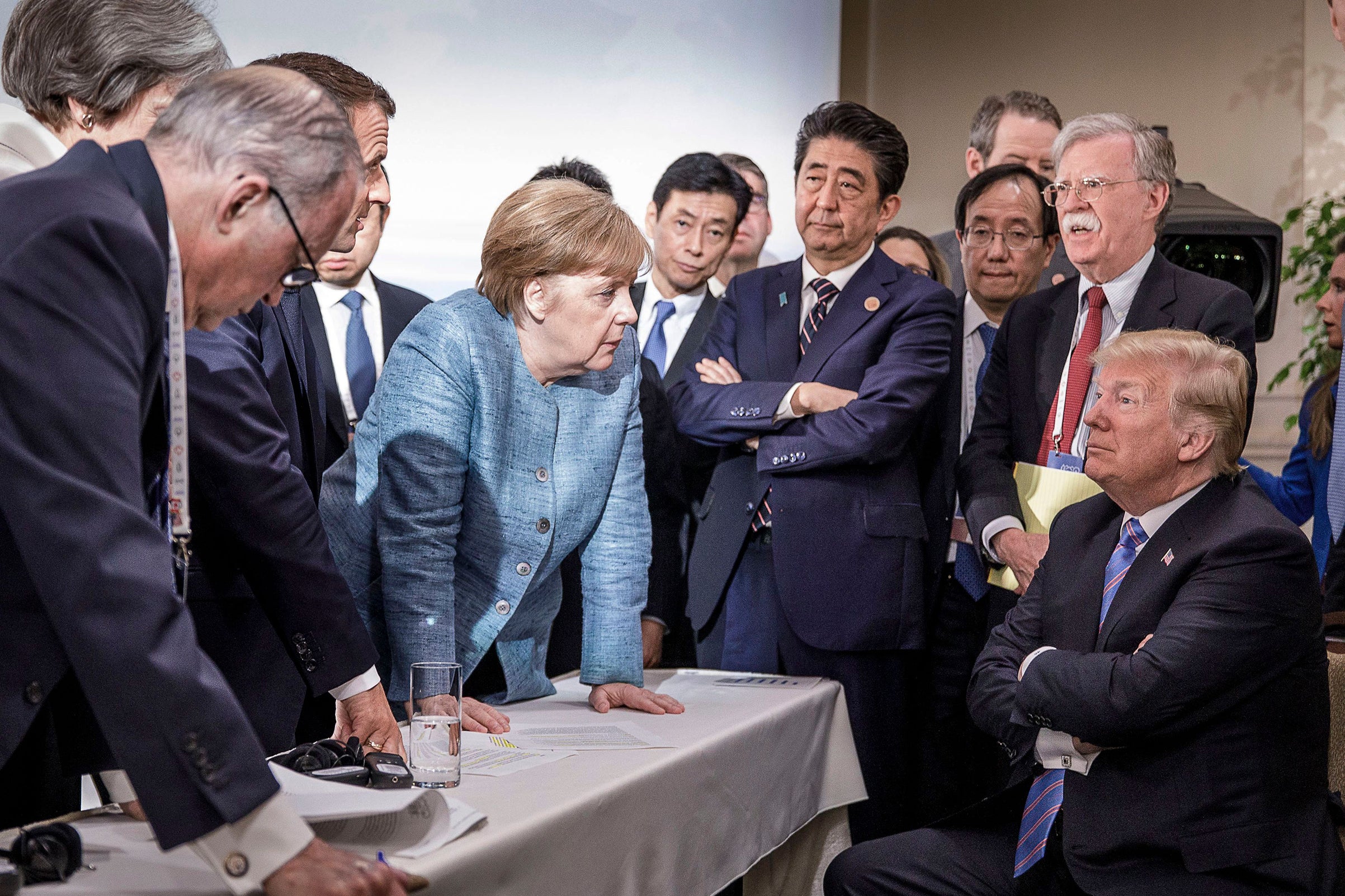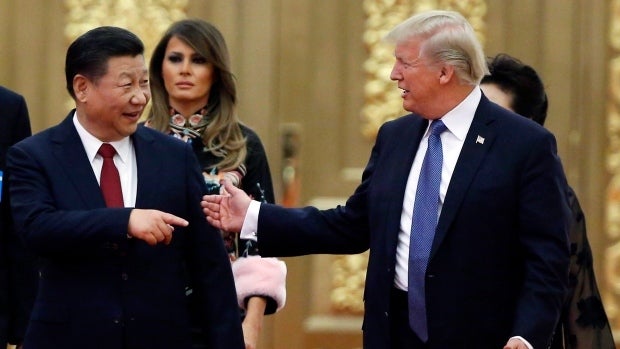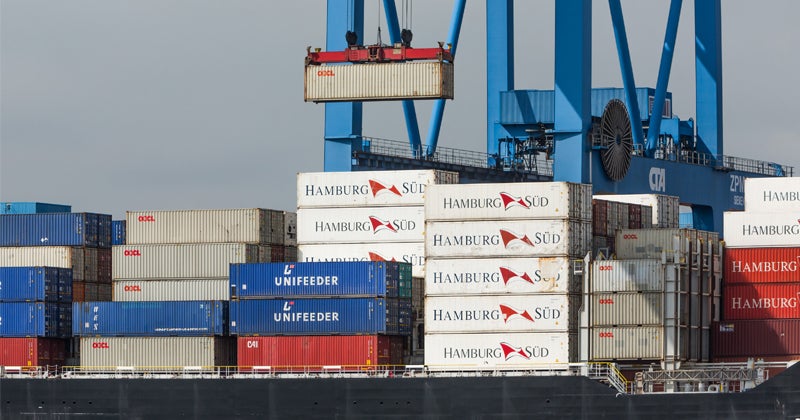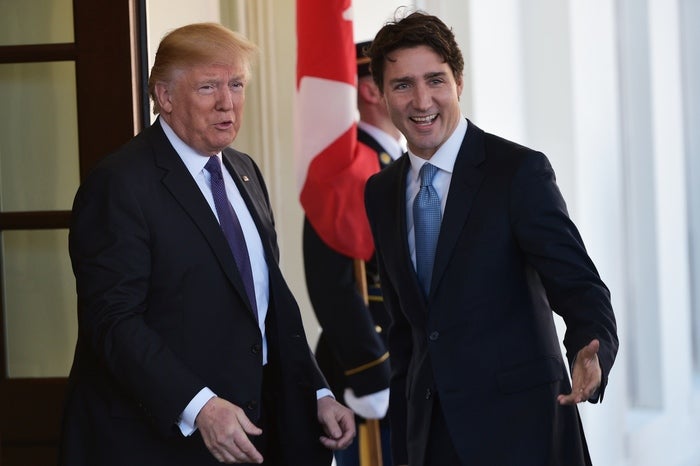
Ever since President Trump declared his candidacy for the 2016 presidential election, his trade policy has been clear – protect the American industry at all costs. He has lambasted the TPP and NAFTA for being unfair deals for American companies, said he believes in a 45% tariff on all Chinese goods, and claimed that “Trade wars are good, and easy to win”.
On July 6th, 2018, Trump may have gotten his wish.
The United States’ possible trade war with China saw its first exchange of fire when the Treasury Department implemented a 25% tariff on $34 billion of Chinese exports. These tariffs were only the first phase of a larger plan the president introduced on June 15th, one that looks to extend $50 billion total in tariffs on China by August 2018. Three days later, after talk of Chinese retaliation, the White House released a statement threatening to increase the tariff to 10% on $200 billion of Chinese goods in 60 days should the Chinese not back down. The Chinese responded with a $34 billion dollar tariff package of their own, and have made their plans clear to respond in kind to all future actions. These tariffs come at a time when the president already has existing duties on all imported solar panels and washing machines, as well as most imported steel and aluminum. SFS faculty offered their takes on the issue in multiple publications.

Negotiation Optimism
Some experts took the more glass-half-full approach, seeing the tariffs and accompanying threats as only a piece in the chess game of greater trade negotiations between the two nations — a piece that will soon be sacrificed to achieve a larger goal, whether it be as wide-reaching as a long-term change in the two nations’ current account balance or as specific as concessions in the intellectual property violation case levied by the U.S. in the WTO against China on March 23, 2018.
“The escalation of tariffs can only have one positive outcome: to renew each side’s enthusiasm for negotiations,” said Marc Busch, Karl F. Landegger Professor of International Business Diplomacy, in an article in Finance Time. “China and other U.S. trade partners are worried about American unilateralism, and the United States and other Chinese trade partners are deeply concerned about China’s regime for intellectual property. In terms of next steps, the tariffs on both sides should be dropped as part of a package deal, including the resumption of negotiations over a U.S.-China bilateral investment treaty, and a commitment by Washington and Beijing to advance non-optional WTO plus provisions in their preferential trade deals going forward.”
Dennis Wilder, Assistant Professor of Practice in the Asian Studies program, had an even more positive outlook in a piece for Business World. “What we’re seeing here is a bargaining process in which the Trump team has found that by continuing to put pressure on China, the offers have become better and better,” said Wilder, who formerly served on the National Security Council for President Bush as Senior Director for East Asian Affairs. “My guess is that the Trump administration will announce but not implement. They want to give the Chinese a little more time.”
Unequal Impacts

China’s retaliatory tariffs, which primarily target agricultural goods like soybeans and pork, have effects only on a few industries, argued experts. However, those industries make up a large portion of Trump’s voter base.
“Agricultural states, I think, are being hit the hardest,” said Professor of Economics Rodney Ludema, who was a senior member of President Obama’s White House Council of Economic Advisers, in an article for USA Today. The states impacted the least? “[Those] that are heavily service-dependent, like New York,” he added.
Distinguished Professor in the Practice of Diplomacy and former U.S. State Department Ambassador-at-Large Robert Gallucci disagreed with the assertion that the impact of Trump’s recent trade policies would cause his supporters to turn on him. “He’s doing fine on the international scene with the people he cares about,” said Gallucci in a recent New Yorker piece. “The more crap he takes for standing up for America at the G-7, the better. Indeed, all the other disasters some of us see on climate change, trade, immigration, Jerusalem, et cetera, are campaign promises fulfilled. Let the old guard whine.”
On his podcast, Tradecraft, Busch downplayed the effects the current tariff regime would have on international markets, adding, “The section 301 tariffs don’t seem to be moving markets a lot at the moment. The markets responded slightly — and in the U.S., even a little positively — after July 6th. It’s also possible that the market has already capitalized on this information, and that the 25% figure just isn’t that much up against what everyone had either been betting on or that anyone feels makes a price difference in the marketplace.”
Effects on Allies
Many saw this announcement as part of a larger pattern of President Trump’s disregard of diplomatic norms in an attempt to project more power towards American allies. The recent steel and aluminum tariffs levied against Canada, the European Union, Mexico, and Turkey have been received poorly by some members of the international community, many of whom accused President Trump of prioritizing the relationship between the U.S. and its traditional adversaries (i.e. Russia and North Korea) over those of its allies.

The Canadian government levied $16.6 billion in response tariffs against U.S. aluminum and steel, prompting speculation by some experts that Canada has plans of future asymmetric retaliation. One possibility would be the suspension of U.S. pharmaceutical patents on Canadian soil, an action that Busch called, “an unmitigated disaster and…WTO-illegal. At the time when Canada is front and center on Special 301 Priority Watch List of the United States to begin to suspend American patents on drugs would invite unshirted hell from not only from this administration but any U.S. administration.”
But that isn’t the only dangerous precedent that could be set, argued Busch in an article he wrote for the Harvard Business Review. The current Chinese challenge to these tariffs in WTO rests on one very important issue: whether or not a country is allowed to decide for itself what violates their national security. Trump’s charge is that China’s trade practices violate U.S. national security interests, but China disagrees. China’s charge is that Trump’s tariffs have nothing to do with national security, and are simply a political move. “If the WTO says no to Trump, this will come across as a rebuke of Washington’s ability to define, for itself, its national security interests,” said Busch, “If, on the other hand, the WTO says yes to Trump, this will incentivize protectionism under the guise of national security.” Many other countries will look to this decision to inform their trade policies for years to come, but no matter what, if the case is eventually tried and decided, there will be an increase in unilateral action, argues Busch. “There are no good moves available to the protagonists other than to negotiate their way out of this mess.”
Furthermore, Theodore Moran, Marcus Wallenberg Chair in International Business and Finance and Director of the International Business Diplomacy program, wrote on China Daily about how the consequences of this trade war are likely to be so dire because “old-fashioned trade wars through the use of tariffs do not correspond to the contemporary world of globalized supply chains.” He argues that “supply chains consist of production facilities that produce customized goods and services- customized inputs of hardware and software- to factories across borders” and that “these customized inputs cannot be readily shifted back to the home country, such as the U.S., as might have been the case with the imposition of tariffs 50 years ago.” Therefore, he concludes, “most of these customized inputs must continue to be exported despite the tariffs, leading to higher cost inputs in the U.S. This makes the enterprises less competitive, and will reduce job creation, not expand job creation, in the U.S.”
Kelly McFarland, Director of Programs and Research for the Institute for the Study of Diplomacy, weighed in from a historical perspective. “History is replete with leaders acting bullishly, with singular confidence in their path and lack of concern for the opinions of others, including allies,” said McFarland in an article he wrote for The Conversation. “And history is also filled with the mixed results – at best – of those actions.”
One faculty member’s premonitions, however, stood out as particularly topical. Professor of Government Andrew Bennett, in an article for China Daily, expressed his opinions on Trump’s seemingly haphazard approach to tariff policy. “There are areas where there is room to criticize Europe on trade, or China on trade, but to just criticize without providing a clear set of expectations and what your goals are is not very productive,” said Bennett.
On a more cryptic note, Bennett later went on to offer a worst-case scenario for Trump’s then-upcoming meeting with Russian President Vladimir Putin. “The worst scenario from the American point of view is if there’s a critical tone (from Trump) of the NATO alliance, and days later there’s an uncritical tone of Putin and Russia,” said Bennett, “That just achieves Putin’s agenda, not the United States’ agenda.”